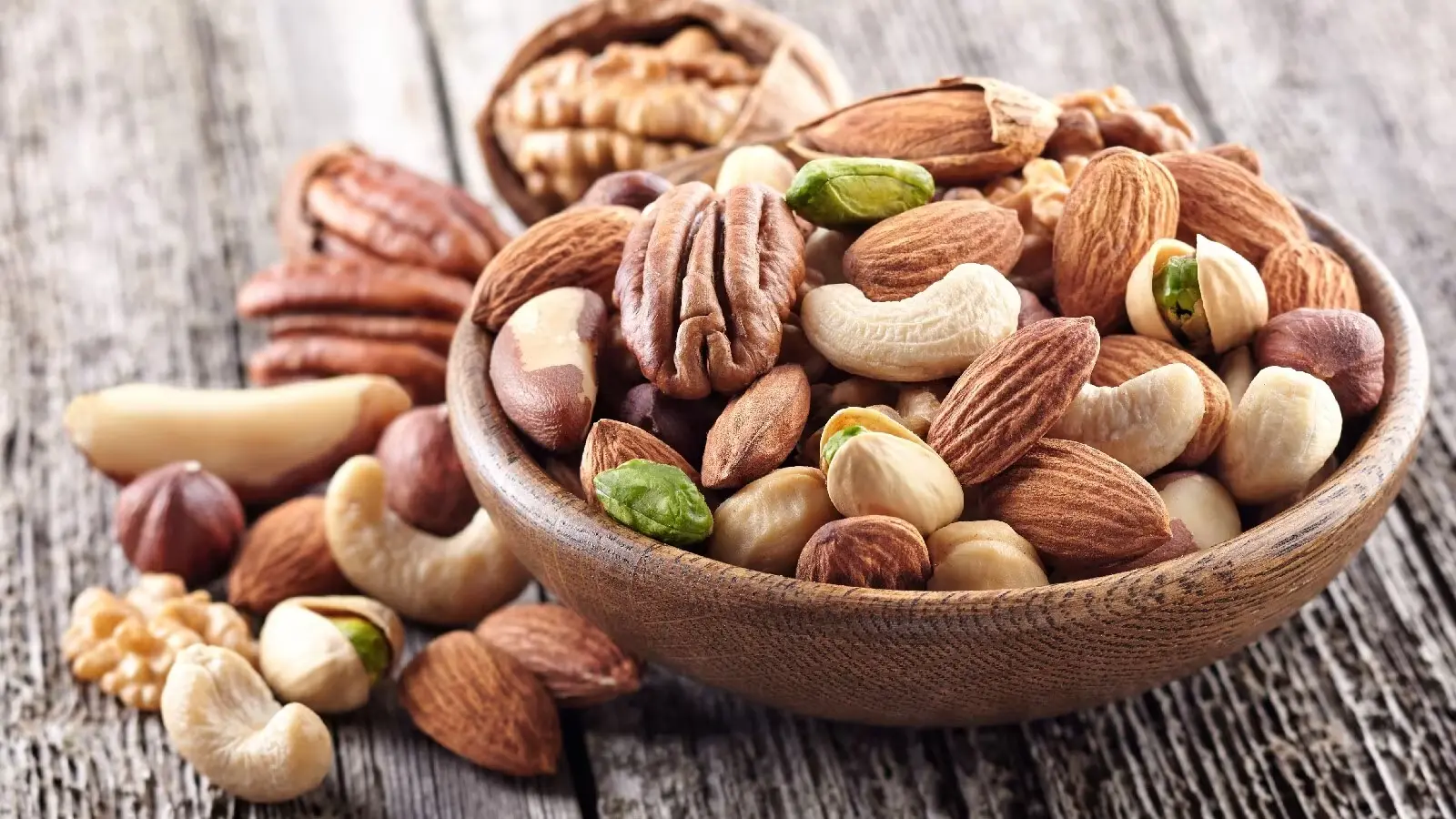
Health Benefits of Iranian Dried Fruits

Must-Know Iranian Spices
Why You Should Include Nuts in Your Daily Meals
Nuts are not only a tasty snack but also a powerhouse of nutrients that can significantly improve your health. Whether you’re looking to support heart health, maintain your weight, or simply enjoy a nutritious snack, nuts can play an important role in your diet. Let’s explore why you should make nuts a part of your daily meals and the numerous health benefits they offer.

Persian Nuts
1. Rich in Healthy Fats
Nuts are a great source of healthy fats, particularly monounsaturated and polyunsaturated fats, which are known to support heart health. These fats can help reduce bad cholesterol (LDL) levels in the blood while increasing good cholesterol (HDL). Regular consumption of nuts, such as almonds and walnuts, has been linked to a lower risk of heart disease. Including healthy fats in your diet also helps with the absorption of fat-soluble vitamins, like vitamins A, D, E, and K.
2. High in Protein
Nuts are an excellent plant-based source of protein, making them a great addition to vegetarian and vegan diets. Cashews, peanuts, and almonds are particularly rich in protein, which is essential for building and repairing tissues, producing enzymes, and maintaining muscle mass. A small handful of nuts can provide a good portion of your daily protein requirements.

Persian Nuts
3. Packed with Antioxidants
Nuts are loaded with antioxidants, compounds that help protect your cells from damage caused by free radicals. Walnuts, for instance, are high in polyphenols, which have powerful antioxidant properties that help reduce inflammation and protect against chronic diseases such as cancer. Including a variety of nuts in your diet can help fight oxidative stress and improve overall health.
4. Support Heart Health
Numerous studies have shown that eating nuts regularly can reduce the risk of heart disease. Nuts like almonds, hazelnuts, and macadamias are rich in magnesium, potassium, and healthy fats, all of which are beneficial for heart health. The combination of these nutrients helps regulate blood pressure, lower cholesterol levels, and improve blood vessel function. Regular nut consumption is associated with better cardiovascular health and a reduced risk of heart-related complications.
5. Aid in Weight Management
Despite being calorie-dense, nuts can help with weight management. The high levels of fiber, protein, and healthy fats in nuts promote feelings of fullness, which can reduce overall calorie intake throughout the day. Pistachios, for example, are often recommended as a weight-friendly snack due to their lower calorie content compared to other nuts. Consuming nuts in moderation can help you manage your weight while still enjoying their rich flavor and health benefits.

Persian Nuts
6. Improve Brain Health
Nuts, particularly walnuts, are known for their brain-boosting properties. They are rich in omega-3 fatty acids, vitamin E, and antioxidants, all of which are linked to improved cognitive function and reduced risk of neurodegenerative diseases. Omega-3s support brain function, while vitamin E helps protect the brain from age-related damage. Regular consumption of nuts may enhance memory and learning abilities while reducing the risk of Alzheimer’s and dementia.
7. Support Bone Health
Nuts are a great source of important minerals like calcium, magnesium, and phosphorus, which are essential for maintaining strong and healthy bones. Almonds, in particular, are rich in calcium, helping to prevent bone loss and maintain bone density. Including nuts in your diet can help protect against osteoporosis and other bone-related issues, especially as you age.
8. Help Regulate Blood Sugar
Certain nuts, such as almonds and walnuts, have a low glycemic index and are packed with fiber, healthy fats, and protein, making them a great option for managing blood sugar levels. They help slow down the absorption of sugar into the bloodstream, preventing blood sugar spikes and crashes. This makes nuts a suitable snack for people with diabetes or those looking to maintain steady energy levels throughout the day.

Persian Nuts
9. Support Skin Health
The vitamins and minerals found in nuts can also benefit your skin. Vitamin E, which is abundant in nuts like almonds, acts as an antioxidant that helps protect your skin from oxidative damage caused by sun exposure and pollution. Additionally, the healthy fats in nuts help maintain skin moisture and prevent dryness, giving your skin a healthy and glowing appearance.
10. Versatile and Convenient
One of the greatest advantages of nuts is their versatility. Whether you enjoy them as a snack, sprinkle them over salads, add them to smoothies, or use them in baking, nuts are incredibly easy to incorporate into your daily meals. They are also portable and don’t require refrigeration, making them a convenient option for people with busy lifestyles.
Conclusion
Nuts are a nutrient-dense food that offers a variety of health benefits, from supporting heart and brain health to aiding in weight management and improving skin health. By including a variety of nuts in your daily meals, you can enjoy their delicious flavors while nourishing your body with essential nutrients. Remember to consume them in moderation, as they are high in calories, but a small handful a day can make a big difference in your overall health.







